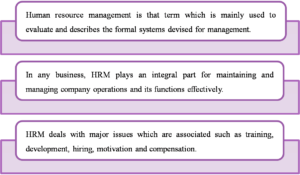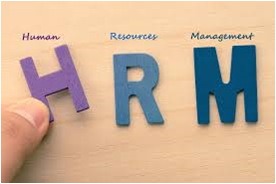Introduction
- Human resource management is that term which is mainly used to evaluate and describes the formal systems devised for management.
- In any business, HRM plays an integral part for maintaining and managing company operations and its functions effectively.
- HRM deals with major issues which are associated such as training, development, hiring, motivation and compensation.

Contemporary themes that affects international business
- Selecting the appropriate source of employees
- Training and Development of staff members
- Working conditions
- Cost of living
- Discrimination

Legal issues that affects international business
- Employment Law
- Rules and regulations
- Legal systems
- Investment treaties
- Corruption issues

What impact will these legal issues have on employees and their performance
- All legal issues are directly or indirectly affects the international business operations.
- In other country, employment law are different which create issues for the employees and affects on their performance.
- The different rules and law also create issues for the employees due to this they does not understand international business legal systems.
Key theories
Key theories may include and critiqued around, but not limited to are:
- Employee performance
- HR Strategy
- Management
- Theoretical HR understanding and practice
How are organisational structures changing and what impact is this having on employee performance
- Structure of an organisation change according to meet with aligned goals and objectives.
- Organisational structure has an impact on employees performance and their actions.
- Technology also influenced how an organisation are structured and how they perform work in proper manner.
Key theories
Key theories may include and critiqued around, but not limited to are:
- Employee performance
- HR Strategy
- Management
- Organisational structures and performance
How has culture impacted on employee performance in various parts of the world
- The culture mainly impacts on the employees productivity and growth level.
- The values and norms of company based on various culture influences on workforce management.
- In such organisational cultures, employees are committed to achieve their goals and this is positively effect on overall performance.
Key theories
Key theories may include and critiqued around, but not limited to are:
- Culture
- Employee performance
- International HRM
Summarize the impacts on employees and their performance
- An organisational culture impacts on the employees performance in which staffs members does not adjust in the negative working environment.
- The company needs to focus on employees performance which can be affected by change in culture.
- International HRM impacts on different level of companies in the market place.
conclusion
- According to the described presentation, it can be concluded that HRM is the set of activities and functions that are helpful in achieving potential goals and objectives of an organisation.
- There are various legal issues which affected the international business and some of the key theories are described as well.
- The culture of the organisation impacts on business operations and its functions in better manner.
References
Morgeson, F.P., Brannick, M.T. and Levine, E.L., 2019. Job and work analysis: Methods, research, and applications for human resource management. Sage Publications.
Guest, D.E., 2017. Human resource management and employee well‐being: Towards a new analytic framework. Human Resource Management Journal, 27(1), pp.22-38.
Shen, J. and Benson, J., 2016. When CSR is a social norm: How socially responsible human resource management affects employee work behavior. Journal of Management, 42(6), pp.1723-1746.
Jamali, D.R., El Dirani, A.M. and Harwood, I.A., 2015. Exploring human resource management roles in corporate social responsibility: The CSR‐HRM co‐creation model. Business Ethics: A European Review, 24(2), pp.125-143.
Delery, J. and Gupta, N., 2016. Human resource management practices and organizational effectiveness: internal fit matters. Journal of Organizational Effectiveness: People and Performance.
Longoni, A., Luzzini, D. and Guerci, M., 2018. Deploying environmental management across functions: the relationship between green human resource management and green supply chain management. Journal of Business Ethics, 151(4), pp.1081-1095.
Baum, T., 2015. Human resources in tourism: Still waiting for change?–A 2015 reprise. Tourism Management, 50, pp.204-212.
Sparrow, P.R. and Makram, H., 2015. What is the value of talent management? Building value-driven processes within a talent management architecture. Human resource management review, 25(3), pp.249-263.
Gallardo-Gallardo, E., Nijs, S., Dries, N. and Gallo, P., 2015. Towards an understanding of talent management as a phenomenon-driven field using bibliometric and content analysis. Human Resource Management Review, 25(3), pp.264-279.
Liu, D., Gong, Y., Zhou, J. and Huang, J.C., 2017. Human resource systems, employee creativity, and firm innovation: The moderating role of firm ownership. Academy of Management Journal, 60(3), pp.1164-1188.
